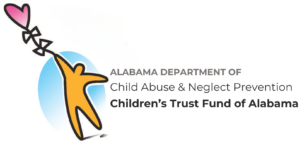When people think of addictive substances, they often think of “hard” drugs like heroin, cocaine, or meth. However, nicotine, a substance found in tobacco products, is highly addictive – both physically and mentally. It changes the way the brain functions and feels. Once your body adapts to having nicotine in its system, withdrawal symptoms occur, making it terribly difficult to stop smoking or vaping.
Even though nicotine is a short-acting substance, it can stay in your body for several days, and cause withdrawal symptoms that last for about two weeks. Understanding what happens during nicotine withdrawal, how long the symptoms last, and what you can do to cope can help you prepare to give up nicotine.
Symptoms of Nicotine Withdrawal
Nicotine withdrawal involves symptoms that are physical, mental, and emotional. When you first stop smoking and nicotine starts leaving your body, you may begin experiencing early symptoms of withdrawal, such as:
- Headaches
- Cravings
- Insomnia
As time goes on, other symptoms will appear. Additional symptoms of nicotine withdrawal include:
- Increased appetite
- Weight gain
- Nicotine cravings
- Headaches
- Dizziness
- Fatigue
- Constipation
- Sweating
- Abdominal cramping
- Cough
- Anxiety
- Mood swings
- Depression
- Mental fog
- Difficulty concentrating
- Irritability
- Tingling in the hands and feet
Everyone is unique, and the severity of your symptoms as well as how long they last depend on how long you have smoked and how much nicotine you consume on an average day.
Nicotine Withdrawal Timeline
While the exact amount of time nicotine withdrawal lasts varies from person to person, here is a general timeline of what you can expect after finishing your last cigarette.
1-4 hours: The effects of nicotine wear off rapidly, so you may begin craving another cigarette just hours after finishing your last one.
10-12 hours: Your cravings may get stronger as you become more restless, irritable, and bored.
24 hours: Your appetite may increase, and you may become increasingly irritable.
2-4 days: Headaches and other physical symptoms may come and go as nicotine completely leaves your system. You may also experience anxiety, depression, and ongoing cravings. Symptoms may peak around day 3.
1-2 weeks: After one week, symptoms should begin to subside. Many symptoms will still linger, but by this time, you have made it through the hardest part.
2-4 weeks: Symptoms such as anxiety, depression, cough, and brain fog should begin to improve. You may still struggle with low energy and occasional cravings.
4+ weeks: After 4 weeks, most of your symptoms should be gone, and you should be feeling better. You may crave a cigarette after a meal or in times of stress, but your cravings will not be nearly as intense as they were in the beginning.
Tips for Coping With Nicotine Withdrawal
Most nicotine relapses occur within the first two weeks of quitting. So, if you can push through the first two weeks, you have made a huge accomplishment. The problem is getting through those first two weeks can be difficult. Here are some tips to help you cope with nicotine withdrawal.
Before You Quit
Quitting nicotine cold turkey is not only difficult, but it could be disastrous if you do not have a plan. Before you quit, take these steps.
- Research your treatment options. There are over-the-counter nicotine replacement medications like gum and skin patches that can help you taper yourself down. You can also speak with your doctor about prescription options to help you.
- Pick a day for your last cigarette. Pick a specific date to stop using nicotine – preferably a day where you do not have too much on your plate.
- Make a list of reasons to quit. Keep this list by you, so you can refer to it whenever the cravings get strong.
- Ask your friends and family for support. Let your loved ones know you are going to quit smoking. Tell them your plan. Not only will they be thrilled, but they can help support you and hold you accountable.
- Locate a support group. Look for online or in-person smoking cessation support groups. Sometimes, talking to others, who understand what you are going through, can take the power away from cravings.
When You Quit
Even if you have a plan, it is normal to feel nervous about quitting smoking. These tips can help ease your nerves and keep the worst of withdrawal at bay.
- Drink plenty of water to stay hydrated
- Chew sugar-free gum or suck on sugar-free candy
- Take ibuprofen or acetaminophen for headaches
- Drink herbal tea and avoid caffeine before bedtime
- Take frequent breaks from tasks if you are having trouble concentrating
- Avoid social situations where other people are smoking
- Practice relaxation techniques (yoga, meditation, deep breathing, etc.)

- Identify your triggers (stress, drinking, etc.) and try to avoid them
- Pick up an old hobby to fight boredom
- Stay connected with your friends, family, and support group
Nicotine withdrawal can be uncomfortable and overwhelming, but these tips can help you overcome your difficulties and give up smoking once and for all. Remember, relapse happens. It often takes people a few attempts to quit before they stop smoking for good. The important part is you keep trying, reduce your nicotine intake, and pick up healthier habits that are better for your mind and body.
References:
https://www.webmd.com/smoking-cessation/understanding-nicotine-withdrawal-symptoms
https://www.healthline.com/health/smoking/nicotine-withdrawal#symptoms









